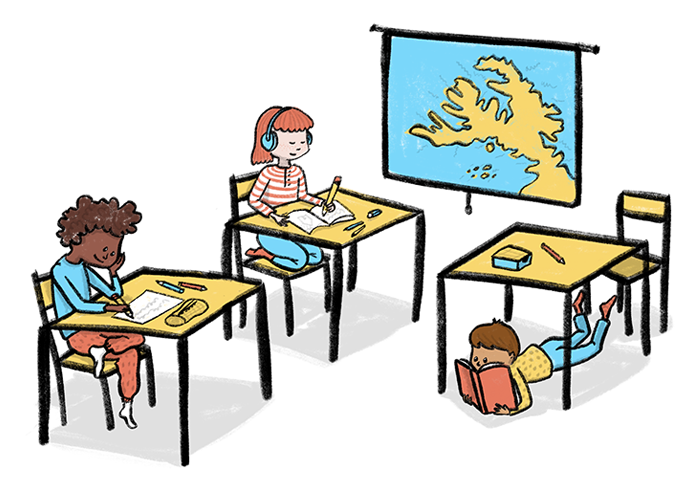Education and teaching

Reykjavík City primary schools follow the national curriculum for primary schools, with reference to the Reykjavík City Education Policy. The main objective of the Policy is for all children to grow, develop and feel happy in a democratic society that is based on human rights and respect for the diversity of human life.
Through robust school and recreation activities, children and young people gain education and experience to realize their dreams and have a positive impact on their environment and society.
Mentor
Mentor is an information system for students, parents and school staff. Guardians and students receive a Mentor password. On the family page, guardians can view their children's schedules, homework, educational assessments, attendance and more.
Lesson plans
Lesson plans describe the content and assessment methods, giving teachers, students and parents an overview of the curriculum.
Student assessment
Sæmundarskóli uses formative assessment, emphasizing growth mindset and individualization. Educational assessment is diverse. Students know expected competency standards.
Teaching methods
Teaching occurs in rotational periods, with specific topics forming the basis for set durations. Instruction is planned around competency standards, and learning materials are selected based on the specific goals being addressed at any given time.
Various teaching methods are used. Students learn to recognize and use available resources. The school always tries to consider each student's situation and ability.
Attendance guidelines
The school emphasizes student punctuality. All children aged 6 to 16 must attend school, and parents/guardians are responsible for their enrollment, attendance, and participation.
If attendance issues arise, parents/guardians and the school must respond.